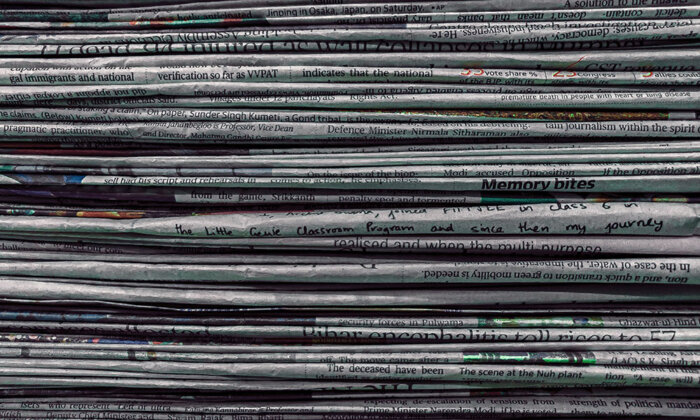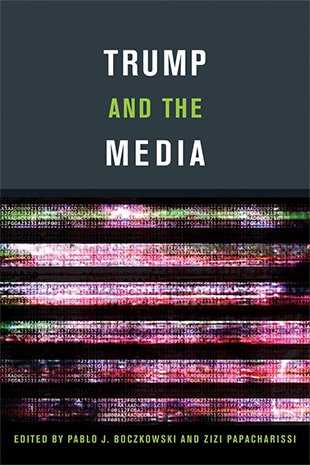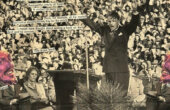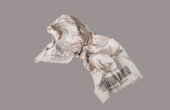The Vital Role of Journalism in a Liberal Democracy

Let’s accept at the outset what Hannah Arendt wrote half a century ago about truth and politics: They are not on good terms. Donald Trump is not the first president to lie. He is not the first populist to turn out to be a plutocrat. He is not the first to surround himself with advisers and spokespeople without respect for reality (remember the George W. Bush aide who spoke of journalists sneeringly as “the reality-based community”). He is of course in an unbroken line of presidents who attack the press — including both George Washington and Thomas Jefferson.
What is original with Donald Trump is his mastery of Twitter, a social media platform that about a quarter of Americans use, but is practically universal among American journalists. If Joe McCarthy retains fame for having taken advantage of the 1950s reportorial norm of printing with a straight face any outrageous charges a U.S. Senator might present to them, Donald Trump is at least as successful in manipulating the Twitterosis that U.S. journalists suffer from.

What may also be original to Donald Trump, among presidents, is a mania for numbers, many of them baseless or wildly exaggerated. In last week’s debate, he touted that on his watch 700,000 manufacturing jobs had been created, when a Politifact fact-check finds the number was closer to 450,000 before the pandemic and a net loss of 237,000 owing to the pandemic-generated recession. And as recently as July, Mr. Trump has spread an inaccurate and dangerous claim that 99 percent of Covid-19 cases are “totally harmless.” In reality, according to a recent compendium of Trump’s lies about the novel coronavirus, the World Health Organization has said that 15 percent of cases can be severe and 5 percent are critical. And then there’s Mr. Trump’s unsubstantiated mail-in voting claim: “RIGGED 2020 ELECTION: MILLIONS OF MAIL-IN BALLOTS WILL BE PRINTED BY FOREIGN COUNTRIES, AND OTHERS,” he tweeted in June. “IT WILL BE THE SCANDAL OF OUR TIMES!”
Of course, in a democracy, numbers matter — and they should, although the founders created the political system that they did because they distrusted numbers and they perfectly despised the multitudes.
Americans call our government a democracy. This is not what the founders called the system they brought into the world in 1789. They spoke of what they were building as “republican” government, by which they meant a representative democracy with protections built into the Constitution to prevent one-person or one-party or even majority rule. We refer to these mechanisms as “checks and balances.” Add to them the system of federalism that locates power in the individual states separately from the power located in Washington, DC. Without these means for limiting the accumulation of power, even power endorsed by a (temporary) majority, ours would not be a political system worth our allegiance.
50 percent plus one can be misled. They can be an angry majority, angry enough to strip the other half of the population of civil, political, and social rights.
This is not something that media scholars, as opposed to most political scientists, have sufficiently recognized. Right-wing populism is ascendant in Britain and the United States, entrenched in Hungary, and in 2017 made serious bids for power in Austria, France, and the Netherlands. Right-wing populism assaults liberal democracy while communication scholars too often reduce liberal democracy to an ideal of participatory democracy and a practical reality of rule by 50 percent of voters plus one. But 50 percent plus one can be misled. They can be an angry majority, angry enough to strip the other half of the population of civil, political, and social rights. Scholars endorsed too warmly and too quickly the idea of Internet democracy — not only are people now coming to see how mythological this idea is but there is a dawning that it should have been rejected from the outset.
Democracy worth defending is liberal democracy, not simply a majoritarian scheme for voting. Liberal democracy is based on majority rule (more or less), but majority rule within law, with specific and enforceable protections for civil and political liberties, particularly for minorities whose small numbers make them unable to form a majority and therefore make them especially vulnerable to what Tocqueville identified long ago as the “tyranny of the majority.” That was not just a catchy phrase.
What is the role of journalism in a democracy? That is, what role should it play in a liberal democracy? Journalists literally “make” news. They do not find it. They do not publish transcripts of reality. Even if they make their best efforts, they would not provide a copy of reality, but reality in a frame, reality enhanced, reality reconfigured by being heightened on a page or a screen, reality retouched by the magic of publication itself.
A U.S. president commands enormous attention around the world whenever he opens his mouth. If he places troops on a battlefield, even many Americans who saw no point in war rally round the flag. If he has a cancerous polyp removed from his colon (Ronald Reagan), thousands of people in the next few days make colonoscopy appointments. If a president can inadvertently push people to undergo colonoscopies, what else can he do by example or by words? When a president declares the mainstream news media to be the “enemy of the American people,” what might otherwise reasonable citizens be inclined to think?
A journalist’s job is to make news, as a carpenter’s job is to build houses. Both crafts have rules. The first rule for journalists committed to their work is to put reality first. Responsible journalists learn to not produce fake news or hyped news or corrupt news. They do not subordinate honest reporting to ideological consistency or political advocacy. They do not curry favor with advertisers, or with the publisher’s business interests, or even with the tastes of the audience. Nor should they bow to the consensus among their own colleagues if it clashes with what they see in the world around them — this, the bias of the inner circle, is the most difficult to avoid.
The first rule for journalists committed to their work is to put reality first.
For a century now, the dominant trend in the history of American journalism has been the professionalization of a staff of reporters who gather the news. Journalism preceded reporting, but from the 1820s on, reporting became the center of American journalism. Europe was not the same; there one opined that “reporting is killing journalism” — that is, straightforward accounts of events of the day were taking the spotlight away from the discursive essays of political advocacy, theory, and philosophy that dominated much of the European press. Only in the 20th century would the European press begin to borrow U.S. news techniques like interviewing and U.S. news standards that placed reporting first.
But doesn’t the U.S. model of journalism deny the truth that presumed “facts” are just opinions in masquerade? That everything is relative, it just depends on the standpoint you start from? Most college sophomores in their first philosophy class will walk in with the argument that “it’s all relative” and that “that’s just your opinion!” — no research, argument, or discussion can alter our preconceptions.
That’s why we call them sophomoric. But none of those students truly believes everything is relative. If their computer malfunctions, they do not pray that it be fixed by divine intervention, nor do they normally kick the computer. Instead, they call tech support — they turn to experts. If one of the students, in the middle of class, feels a powerful and distressing pain in his chest, he can ask the philosophy professor for her guidance or he can ask the student at the next desk for her advice or he could ask someone else to call for emergency medical assistance. Will he choose A, B, or C? He will choose C. He will seek medical assistance. When reality insistently knocks at the door, the premature commitment to “everything is relative” is left behind. Relativist or modernist or postmodernist, left or right — all will seek out experts.
When people want to know on an everyday basis what is going on in the world, most turn to professional news gatherers who have earned reputations for reliability. But how is a person to know which of the news providers and purveyors around us can be trusted? Expertise in reporting is not certified by many years of study and training as in medicine, or by easily measured results, as with the computer tech expert who either fixes or fails to fix the computer. But there are, nevertheless, some earmarks of evidentiary quality in journalism:
- Willingness to retract, correct, and implicitly or explicitly apologize for misstatements. The Time reporter who misreported in the first day of the Trump administration that President Trump or his aides had removed the bust of Martin Luther King, Jr., from the Oval Office retracted and corrected his report within hours. That is what responsible reporters and news organizations do.
- Adherence to professional ethics — including the following:
—Be accurate. Spell the name right. Get the address right. There’s no “it’s all relative” here. Joan Smith lives at 10 Maple Avenue or 20 Maple Avenue, not at both addresses, and 15 Maple Avenue as an approximation is not good enough. Write a story that tells what happened, not what you think about what you think happened, or what you wish happened, or what might have happened.
—Dig for contrary evidence. “Report against your own assumptions,” my Columbia Journalism School colleagues tell their students.
—Follow the story wherever the evidence leads. If you are a reporter, not a propagandist, you will follow the story you catch a glimpse of even if it may injure the career of the candidate or party or cause that you personally favor or that your news organization has endorsed. The New York Times repeatedly endorsed Eliot Spitzer’s bids for office in New York, including in his race for governor in 2006. But it also broke the sex scandal story that led Governor Spitzer to resign. A real reporter prizes a truthful story over partisan advantage or political preference, come what may. - Reliable journalists adopt some identifiable literary features, too, like the following:
—Be calm and declarative. No hyperventilating.
—Present multiple positions or viewpoints within a story if the topic is a controversial one and if (unlike “false balance”) the various sides adhere to different values but are not separated by an acceptance of consensual scientific evidence and a rejection of it.
—Identify your sources whenever possible. And acknowledge the gaps, inconsistencies, or insufficiencies in the data you are basing your story on.
—Use commonly accepted data, databases, and reliable authorities. If you want to write about whether more people rode the Washington, DC, metro system on the day of Barack Obama’s 2009 inauguration or on the day of Donald Trump’s 2017 inauguration, to provide a reasonable proxy for the size of the inauguration crowd, ask the Metropolitan Transit Authority that collects this data. If you prefer to take President Trump’s word for it, you are not a journalist; you are a propagandist or a sap. Personal vanity is not a commonly accepted database.
Professional news reporting is not easy. Its place in the world is still young—it really cannot be said to have existed in a full-bodied way for much more than a century. That’s not a long stretch. But at its best, it has proved itself a bulwark of accountable democratic government and a thorn in the side of autocrats around the world. The economic fragility of the news media these days is troubling, and it sometimes leads venerable news organizations to prefer clicks to conscience, but reporters can and often do maintain a fierce allegiance to its highest ideals, and this is a force to reckon with. When President Trump called the mainstream media the “enemy of the people,” many journalists responded with redoubled effort to hold him accountable for both his words and his actions.
Recommended Article
Professional journalism is often a quick study. It is a “first rough draft” of history, not the last word. But it is the enemy of pride and pomposity and ignorance. When the president of the United States is a walking, talking, tweeting example of pride, pomposity, and ignorance, we need professional journalism more than ever.
And, of course, that’s not all we need. We need a professional civil service loyal to its own standards of integrity, not loyal to whichever party or person happens to occupy the White House. We need an independent judiciary that, likewise, is dedicated first to enforcing the law, not to pleasing the occupant of the White House. We need the whole energy of civil society — partisan and nonpartisan organizations across the political spectrum that seek to hold government accountable. We need the decentralized strengths of a federal system with states free (within the Constitution) to make decisions for themselves that Washington has only limited authority to challenge. The news media alone are a slim reed against a determined autocrat. But the news media, alongside other essential elements of liberal democracy, have a key role without which democracy itself is endangered.
Michael S. Schudson is professor of journalism in the graduate school of journalism of Columbia University. He is the author of several books, most recently “Why Journalism Still Matters” (Polity).




